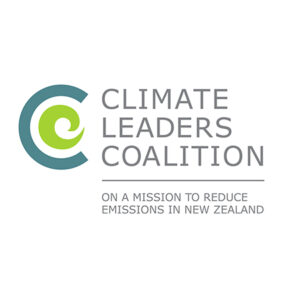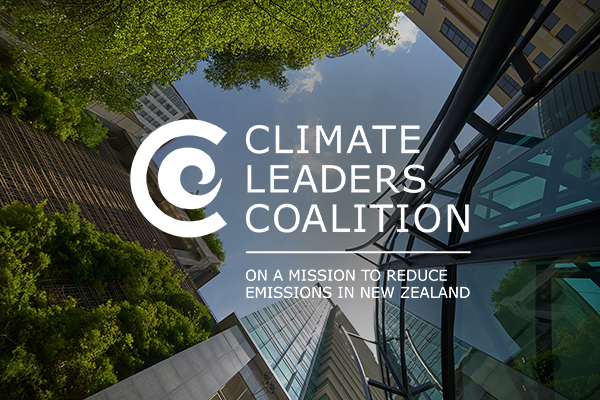Introduction
Supporting the announcement of the Climate Leaders Coalition and the signing of the CEO Climate Change Statement, the following document has been created to provide an overview of the Coalition, the case for a low emissions economy, and the background of Coalition members, business leaders, and their sentiment and action in this space.
Topics covered in this document are outlined below:
Climate Leaders Coalition: Background
The CEO climate statement
The business case for a low emissions economy
The Paris Agreement (overview)
CEO biographies and supporting statements (selection)
Sustainability in action – CLC member case studies
Coalition members overview

Climate Leaders Coalition: Background
Back in early October 2017, more than a dozen CEOs from New Zealand’s leading businesses got together to talk about what they could meaningfully do to show business leadership on climate change action.
Convened by Mike Bennetts, CEO of Z Energy, they decided to develop a Climate Change Leadership Statement, outlining their commitments and inviting other CEOs to sign up.
They agreed that when they reached 50 signatories and around 50 per cent of New Zealand’s emissions, they would publicly launch this statement. There are now 60 signatories, representing nearly half of New Zealand’s emissions. They include: Z Energy, Westpac, Ngai Tahu Holdings, Air New Zealand, NZ Post, The Warehouse Group, Vector, KiwiRail and Spark, to name a few.
The numbers:
*60 x signatories
*Representing nearly half of New Zealand’s gross emissions
*Employing 127,000 New Zealanders (8% of the workforce)
Representing 22% of New Zealand’s private sector GDP
They will continue to meet to identify other opportunities for their collective leadership to reduce emissions for New Zealand.
The CEO Climate Change statement
For the generations after us, for the country we love, for the viability of our businesses, we are ambitious for action on climate change. If we act now we can forge a path to create a future that is low-emission, positive for our businesses and economy, and inclusive for all New Zealanders. We are committed to playing our part to make that future real. If we don’t, our competitiveness is at risk.
We take climate change seriously in our business:
*We measure our greenhouse gas emissions and publicly report on them
*We set a public emissions reduction target consistent with keeping within 2° of warming
*We work with our suppliers to reduce their greenhouse gas emissions
We believe the transition to a low emissions economy is an opportunity to improve New Zealand’s prosperity:
*We support the Paris Agreement & New Zealand’s commitment to it
*We support introduction of a climate commission and carbon budgets enshrined in law
The business case for a low emissions economy
The Climate Leaders Coalition demonstrates a commitment from business leaders to tackle climate change and represents a growing willingness to meaningfully engage with and take leadership on sustainability issues. Research from local and international research organisations shows that businesses that put sustainability at their core, can create operational efficiencies and save up to 45 percent in costs.
Ethical business is also an important factor for employees, with 72 per cent of people surveyed in the 2016 Colmar Brunton Better Future’s Report saying it’s important for them to work for a company that is socially and environmentally responsible. This same research found there is also a significant and positive impact on talent acquisition, with two thirds (66%) of New Zealanders preferring to work for a company with strong values, even if paid less.
With a growing interest in sustainability across New Zealand, and the recent Government announcement of the Zero Carbon Bill, there are several trends which can be seen developing within New Zealand businesses.
*There is a greater willingness for business leaders to take leadership on sustainability issues
*The rise of technology and other advancements are helping more businesses to transition to sustainable practices
*The number of investors taking an interest in non-financial performance is growing, and they are signalling this more strongly
Sources: Deloitte Monitor, Social purpose and value creation: The business returns of social impact, and 2016 Colmar Brunton Better Futures Report.
The Paris Agreement
The Paris agreement commits 197 signatories to:
1) Holding the increase in the global average temperature to well below 2°C above pre-industrial levels, and pursuing efforts to limit the temperature increase to 1.5°C above pre-industrial levels, recognising that this would significantly reduce the risks and impacts of climate change;
2) Increasing the ability to adapt to the adverse impacts of climate change and foster climate resilience and low greenhouse gas emissions development, in a manner that does not threaten food production; and
3) Making finance flows consistent with a pathway towards low greenhouse gas emissions and climate-resilient development.

